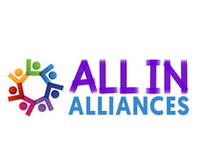

How to Organize in a Community Here are 5 BASIC PHASES... keeping in mind that there's no set formula, and these phases will overlap and shift in practice.
We're always figuring it out as we go along. Most importantly: Follow people's energy, interests, and talents. Keep your eyes on the prize. Reflect on every action, and act on your reflections. And remember, the job of the organizer isn't to clean up the mess, but simply to keep the mess moving forward! ... [ more ] | |
Principles of Building Power Power is the ability to make things happen the way we want them to. We stay rooted in the world as it is and work toward the world as it ought to be. Yes, we do get to have a say in how the world ought to be, and to make it happen together. If things aren't the way they ought to be, it's because we haven't built enough power - yet.
When we are serious about building power, we keep our eyes on that prize: it's the goal of every meeting we have, every event we run, every project and issue we work on. When we do organizing, as opposed to project management or event planning, the project or event is not the end but the means. The end is building power ... [ more ] | |
Power Mapping: A Quick Guide Power mapping is a simple and effective way to (1) understand the power relationships that currently exist in a community, (2) identify the most important organizations and leaders to connect with, and (3) craft an effective strategy to grow community power.
Power mapping is most effective when it’s done by a group of people in the community. All you need is a big sheet of paper and a few markers. There are many ways to power map, but here’s a one simple method ... [ more ] | |
One-to-One Relational Meetings One-to-One relational meetings are a way to build power through public relationships. Power is the ability to make things happen the way we want them to. Power = organized people + organized money + organized ideas.
Public Relationships are based in mutual self-interest and accountability. The goal of a one-to-one relational meeting is to better understand the other person's self-interest: the basic desires and passions that causes that person to act as they do and to determine if that person could become a leader or active participant in the work you're involved in ... [ more ] | |
A Quick Guide to Facilitating a Story Circle In some form and fashion, people have been sitting around telling stories since we learned to talk 100,000 or more years ago. Socrates believed the living word has a soul of which the written word is properly no more than an image — and he refused to write down any of his thoughts!
The story circle methodology has roots in Civil Rights organizing. It was developed by Junebug Productions, which grew out of the theater wing of the Student Nonviolent Coordinating Committee (SNCC), in collaboration with Roadside Theater in the Appalachian coalfields. Story circles have been used in playmaking and organizing in communities across the country ... [ more ] | |
How to Cut an Issue We cut issues out of problems, because problems are too big to solve all at once.
Problems are the big, abstract things that are wrong in our communities. They are imprecise. Issues are a particular instance of a problem that's Precise, Organizable, and Winnable (POW) ... [ more ] |
All In Alliances
Please feel free to reach out with any questions you may have.
info@allinalliances.org
All In is a network of grassroots community organizing alliances in a growing number of Connecticut cities and towns. We are neighbors working together on affordable housing, food insecurity, and a place at the table in the decisions that affect our lives.

all materials copyright © 2025
All In Alliances